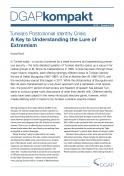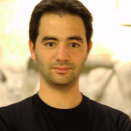Having undergone three major identity shuffles in six decades, the Tunisian population has been exposed to a range of competing views about its past and future. Today, post-dictatorship political parties, instead of cementing peace between people and resolving opposing grand narratives, have only deepened the rifts, mainly for electoral reasons. This in turn is affecting the country’s youth, whose doubts about their own identity are making them susceptible to radical ideologies.
“Being Tunisian” today is explained by two major, contradictory narratives. One side, mainly represented by the Islamist Ennahdha party, sees Tunisia as an integral part of the Islamic world, with its customs and united trajectory, and blames the country’s semi-Westernization on French colonialism and postcolonial policies. The other side – loosely described as secularist and composed of different political parties over the year, most recently by the Nidaa Tounes party – takes a more nationalistic view, placing Tunisia within a context of Mediterranean cosmopolitanism and sees the country as sharing some of Europe’s principles. This side links the rapid “Islamization” of the country to the influence of Arab Gulf countries. These poles have stronger iterations as well. More extreme types of Islamists may serve as a grassroots to ISIS, while on the nationalist side, one may see advocates of authoritarian police states modeled on the postcolonial regimes that preceded the revolution using the “fight against Islamism” to justify their abuses of citizens’ rights.
Between these poles are other, more nuanced but less influential narratives. These include the identity prophesied by former President Moncef Marzouki’s supporters, which combines Islamist/pan-Arabist attachments and Europhile opinions; that of the leftist pan-Arabists, strong components of the Popular Front, who refute both Westernization and Islamization, while linking Tunisia to pan-Arab, anti-imperialist past, and present causes; and other, more marginal views that pop up occasionally in the public sphere.
These debates are to be found less in rural settings than in urban ones, where political parties operate and where different media and social media outlets are watched, heard, and read. Facebook is the place where opinions are discussed and expanded on the most. The social media platform is often the starting point of subsequent media wars regarding the positions mentioned above. The Islamist narrative is more widespread, however, as mosques and Islamic charities are a natural conduit for it and have greater influence on Tunisia’s remoter regions.
Continue reading this article by clicking on the box in the upper right.

